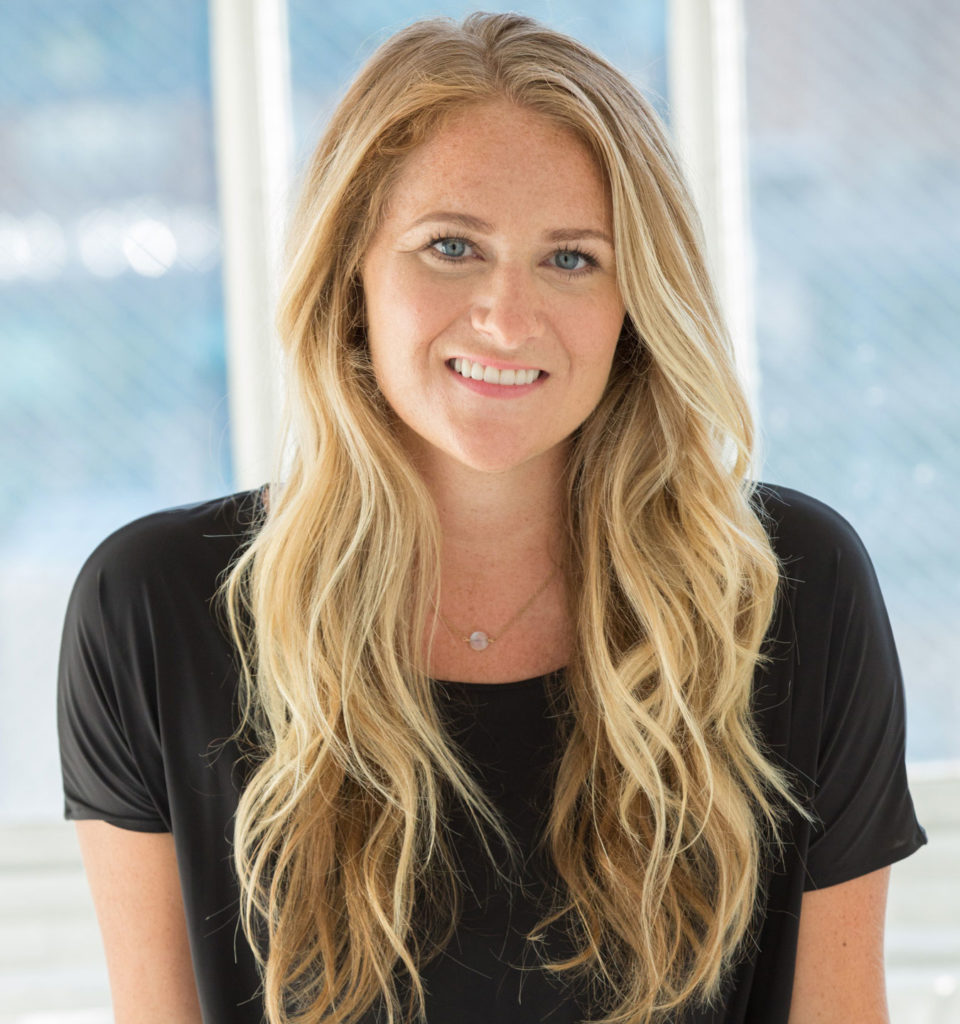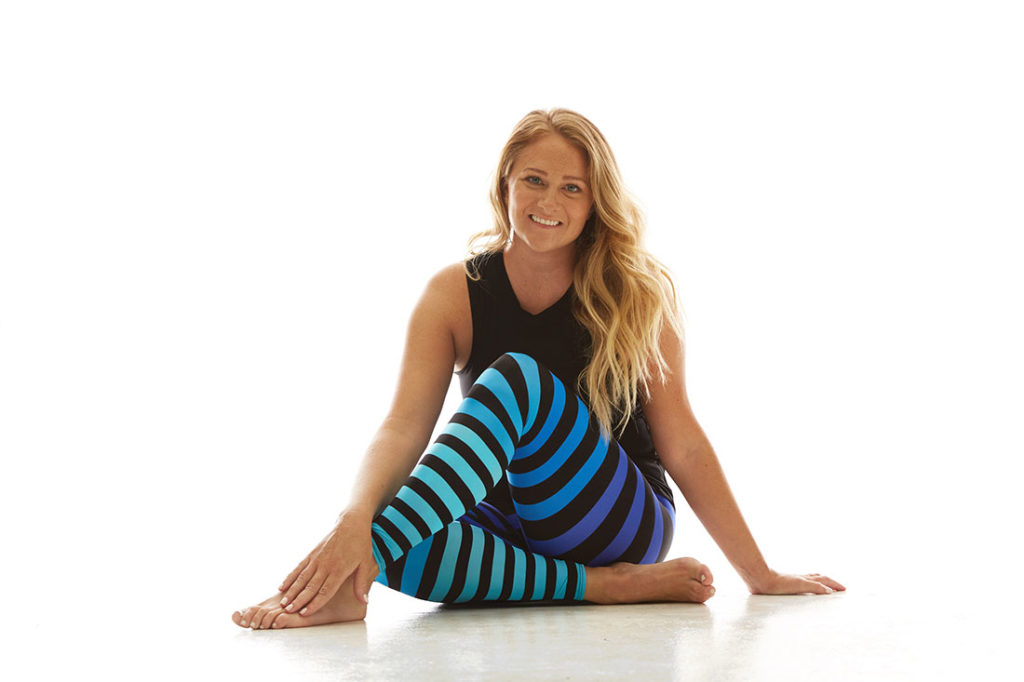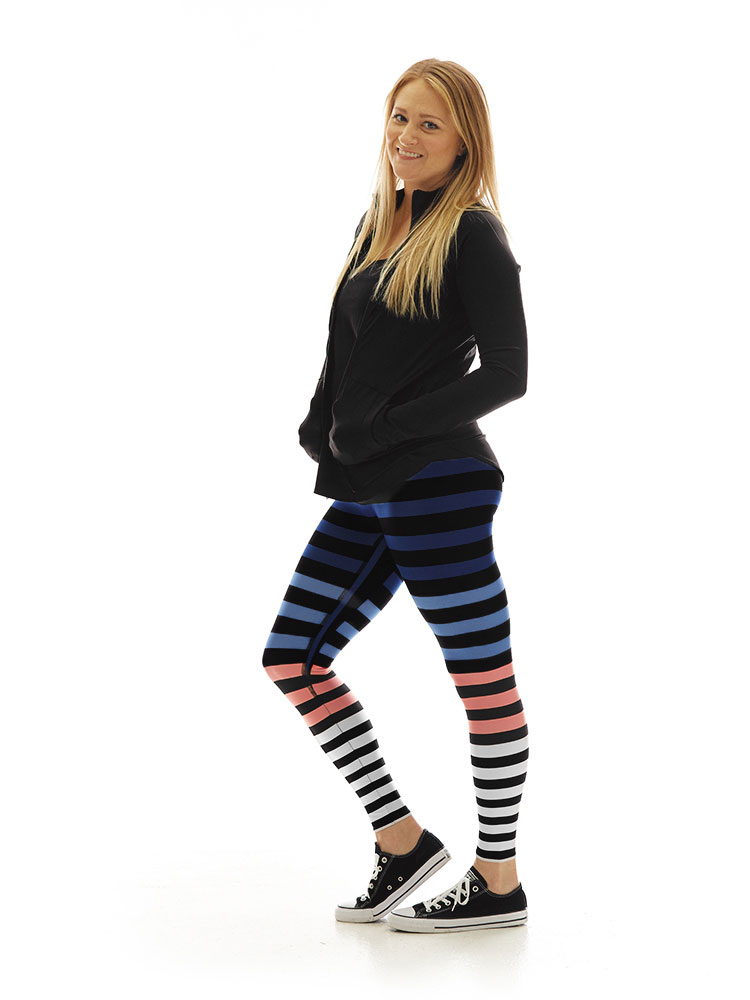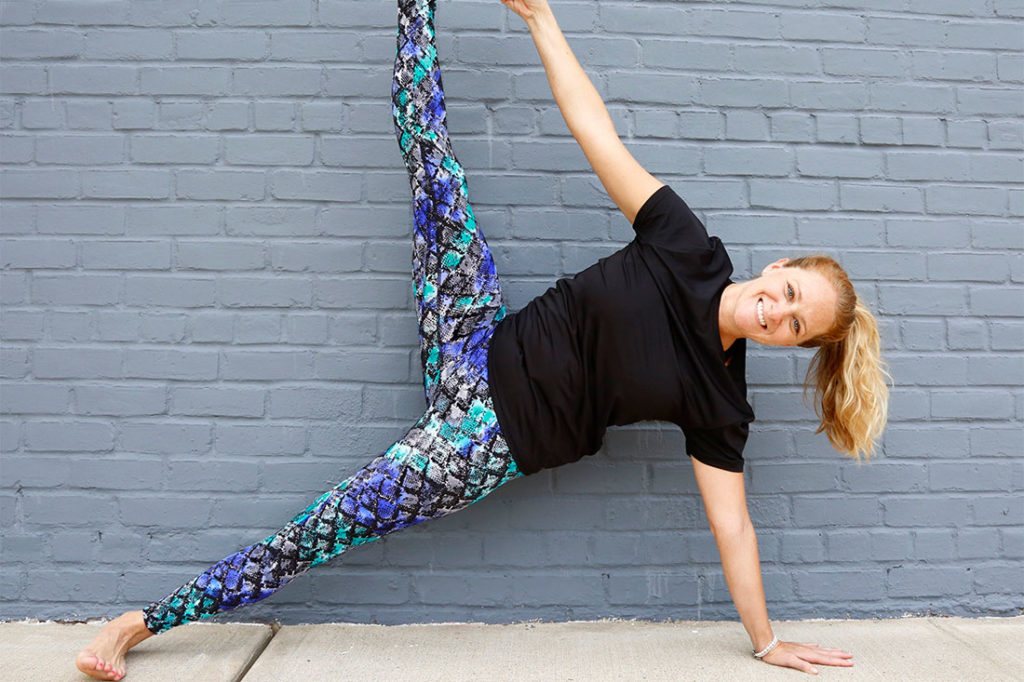In 2010, after losing her fashion design job during The Great Recession, Kristine Deer founded the activewear brand K-DEER. What started as an Etsy store expanded so substantially that celebrities such as Naomi Campbell and Candace Cameron Bure have worn her clothes in magazines, on TV and in their everyday lives. Although the brand overcame previous challenges during its dozen years in business, an abrupt and unexpected supply chain disruption due to the pandemic ultimately led Deer to cease operations in July.

Deer built K-DEER from modest beginnings, without a business degree or financial backers. “I didn’t have an elaborate plan, and I think that was to my benefit,” she says. “Sometimes you have to put some slack in the reins in order to let things go naturally in the direction they should.”
Taking a leap
K-DEER was one of the first brands to make and market printed activewear in 2010 before it became an established retail department.
“I had nothing to lose besides my ego,” Deer says. “Rejection is naturally something an entrepreneur has to go through, but my confidence in this completely unique style was high enough that I chose to take the risk.”
It started with the Bum Bum, yoga bottoms Deer created from swimsuit material. She sold more than 800 pairs within the first year, which led to her namesake apparel line, K-DEER. In recent years, its annual sales exceeded $1 million and Macy’s carried the brand.

Deer utilized social media, particularly Instagram, to engage customers. It also helped her overcome one of K-DEER’s most public challenges. After a major activewear retailer copied multiple designs in 2015, K-DEER fans started the hashtag #IStandWithKDEER to express their support for K-DEER and call for a boycott, which ultimately led the brand to pull the items.
“Seeing our most popular designs knocked off by a major brand was a heartbreaking moment, but the response from our community showed me that integrity is as important to our customers as it is to me,” Deer said.
An honest and open approach
Digital platforms also provide an outlet for Deer to speak openly with her followers about personal matters. She was diagnosed with major depressive disorder and anxiety over a decade ago, and addressed her struggles on K-DEER’s blog. “What I’ve come to learn since opening up about my mental health is that I’m not alone, and it does get better,” Deer said.
Deer shows how a diagnosis can be an asset rather than a weakness. “My mental health is also my superpower in that I have a tremendous amount of love, compassion and wisdom to share because of all I’ve been through,” she said. “I want others to know that depression does not define who you are, and there are a lot of tools to help cope, heal and grow from it.”
After many ups and downs, Deer achieved a state of mental stability that allowed her to examine other facets of her identity. “It wasn’t until I reached a point of feeling safe enough that I explored the deep question of whether or not I was gay. I was in therapy for eight years before I had the guts to even say it to the person I could trust the most, my therapist,” she said. “I feared judgment from everyone so much that I held it inside until I just about burst.”
Deer’s mental health has improved greatly since coming out, and she’s now in remission from major depressive disorder.
Building a community around belonging
Being out also affected Deer’s role as a business owner, sharpening her attention to details during tasks like reviewing the brand’s marketing materials. “I see inclusivity, language and representation on a whole new level since coming out,” she said.
Inclusivity was an important part of how K-DEER handled production and marketing. “We’ve always made an effort to show all humans that they belong in K-DEER,” Deer said. “All bodies, races, genders, sexualities and a variety of abilities are present and revolving through our website, ads, emails and social media.”
It’s increased her curiosity and inspired her to question what else there is to discover. “Coming out later in life is a unique experience in that I’d adapted my whole life around ideas based on the cis-heteronormative agenda,” she said. “I’ve opened my eyes to things I’ve never seen before in my business.”

Social impact factored into Deer’s business operations as well. K-DEER donated a portion of profits from its most popular collection, the Signature Stripes, to nonprofit organizations. The program generated over $240,000 to causes including eating disorder prevention, cancer advocacy and LGBTQ youth services since its start in 2014.
An abrupt stop
K-DEER strove to be sustainable. For the past 12 years, its entire supply chain traveled less than 250 miles. “We proudly made everything here in the USA, including our fabric,” Deer said. The printing and manufacturing was also done locally in Bergen County, New Jersey.
In July 2021, Deer received just 20 days notice that the print mill they’d worked with exclusively since 2014 was closing. This rendered the company unable to produce its signature fabric because no other mills in the U.S. could accommodate their specifications.
Deer and her team went into global research and development mode seeking suppliers. Rising costs meant they also had to test international options for raw goods and manufacturing. “I found options, but they all just weren’t good enough, and I knew it’d hurt the brand and the integrity we stood by,” she said. “I knew it was coming, but the final decision came when I realized that I didn’t want an uphill battle going forward.”
Embracing gratitude
Deer is grieving the end of K-DEER and experiencing a variety of emotions, including waves of relief and consideration of her identity outside of the brand. “I think the most powerful feeling has been gratitude,” she said. “I used to get mad at K-DEER for giving me the challenges it did, but now I see them all as blessings that’ve made me a better human, leader and partner.”
Looking back, Deer is most proud of K-DEER’s innovation. She said, “Our signature legging design was born from questioning the way it was always done. I engineered our pattern without a front crotch seam and added a gusset to increase flexibility and fit, which has been replicated by most major activewear brands. The high waistband was the perfect height to avoid needing elastic that’d pinch at the body. Foundationally, K-DEER evolved as I personally did.”
Deer realizes that, through creating a brand to solve a problem for people like her, she also developed a community. “K-DEER will forever be a connector of like-minded humans, a symbol of open-minded and open-heartedness,” she said.
Deer views the closing of K-DEER as an opportunity to do something even better next. “I’m proud of myself for trusting that K-DEER wasn’t meant to last forever. It’s been an incredible teacher and container for the experiences I’ve had so far and I don’t see the lessons ending anytime soon,” she said. “Perhaps K-DEER is, in fact, my catalyst for something greater and more profound.”
Photos: (Featured image) courtesy Trine Deer; (All others) courtesy Jay Sullivan






